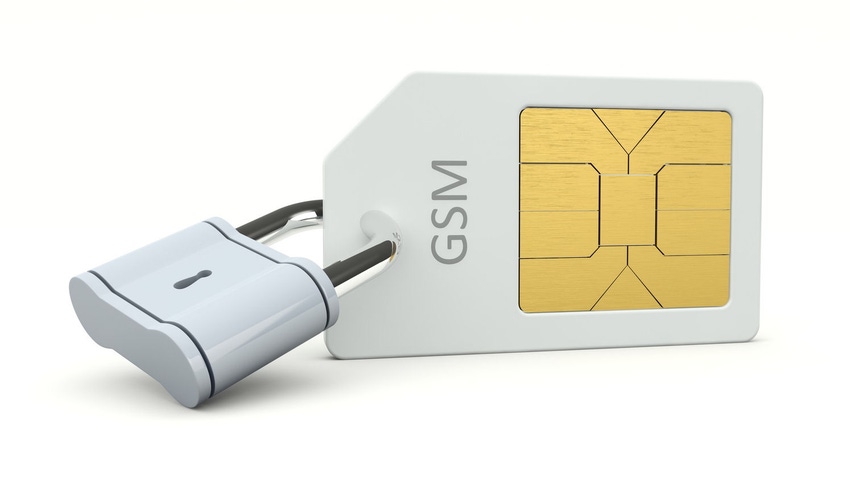In a mature telecoms ecosystem where new streams of revenue are difficult to find, with margins squeezed and competition increasingly fierce, operators are looking at places where revenue is being eroded to improve their margins and profitability.
November 13, 2015

Telecoms.com periodically invites expert third parties to share their views on the industry’s most pressing issues. In this post, Katia Gonzalez, Head of Fraud Operations & Services at BICS and i3forum Fraud WorkStream Chairperson, looks at the nature of telecoms fraud today.
In a mature telecoms ecosystem where new streams of revenue are difficult to find, with margins squeezed and competition increasingly fierce, operators are looking at places where revenue is being eroded to improve their margins and profitability. One of the most prevalent forms of lost revenue is telecoms fraud.
Fraud aimed at mobile carriers is not a new problem. Billions of pounds are lost annually and the true scale of the problem is still uncertain, with operators not always detecting all attacks or reluctant to reveal details of attacks to their competitors, investors and customers. Traditional methods of defence have revolved around post-facto solutions that fix the cause of the problem after an attack. Whilst that may arrest future revenue loss through exactly the same channel, the revenue from the initial attack is sacrificed.
Proactivity and collaboration are key. This has been recognised through the formation of a number of specialist industry groups looking at the specific issue of telecoms fraud and outlining best practice in revenue protection methods, including the GSMA’s Fraud and Security Group, I3 forum Fraud WorkStream, the latter focusing on the issue from a wholesale perspective.
The whole industry suffers from fraud and it has a great impact on both the operator and the level of service they can provide to their customers. The service provider impact is a financial and reputational one, whereas the subscriber may feel the effect through unexpectedly high invoices, spam calls and SMS, and call quality degradation, i.e. traffic congestion caused by a high volume of fraudulent activity on the network.
Fraud comes in a number of forms, with international fraud types becoming increasingly prevalent. In recent months, BICS’ partners have reported weekend roaming fraud attacks causing losses of over €400,000. Roaming fraud is a popular outlet for criminals and is an area where operators tend to be highly exposed, as it takes longer to detect than domestically originating frauds. In most cases, when roaming fraud is detected, a few hours of traffic have already passed through the network which in some cases leads to significant revenue loss.
Fraud Comes of Age
The move to all-IP networks has changed the fraud landscape with an increasing amount of equipment IP-enabled and ‘accessible’ to fraudsters to perpetrate fraud. By using a crowdsourcing fraud platform, service providers are able to monitor the most prevalent fraud schemes in the industry.
Although many of these incidents are the result of attacks that are variations of the same methods criminals have been using for many years, the move to all-IP has enabled hackers to increase their efficiency and the speed in which they can make these attacks and maximise the gains from each breach.
Here are the descriptors of four types of common telecoms fraud:
International Revenue Share Fraud: One of the most damageable and difficult to prevent frauds, various techniques are used to encourage fraudulent international calls which are then routed to premium rate numbers or to countries with high termination fees such as Cuba or Satellite destinations, often through a number of international operators. By routing to the most expensive destinations, criminals have the opportunity to create large charges very quickly.
Wangiri: A large number of calls are made at random and cut off after one ring in an attempt to get the recipient to return the call which is then connected to a premium number. This type of activity is now being expanded to target users of OTT services by sending messages asking for an urgent call which then leads to a premium rate number.
PBX hacking: One of the oldest forms of telecoms fraud which occurs when hackers target Private Branch Exchanges and make a high volume of calls to premium rate or overseas numbers.
False Answer Supervision: Here, traffic is intercepted by a third party that claims the call lasts for longer than it actually does, has been established before it has been, or has been answered when it has not. The charge is then made for the increased call time, or for calls which never took place.
New fraud variants are being developed and exposed all the time and operators’ best defence is to work collaboratively on preventing this revenue loss.
This has already begun with wholesale carriers who are in the ideal position to monitor attacks and analyse anonymised data from incidents around the world. By sharing data of these attacks (both successful and attempted) operators around the world can proactively protect themselves against current threats being experienced by other operators around the world.
 Katia is Head of Fraud Operations and Services at BICS, a leading global wholesale carrier in the Telecom industry. With more than 11 years of experience in the Mobile and Wholesale Telecom industry, Katia has held different positions in the Wholesale Carrier Business (i.e. trading manager, pricing manager and now Head of Fraud Operations and Services) that allow her to understand the various aspects of the business as well as its challenges. Katia also chairs the i3 Forum Fraud WorkStream, which brings together the communications expertise of more than 50 telecommunication providers, representing a combined retail base of over 1.5 billion customers across 100+ countries.
Katia is Head of Fraud Operations and Services at BICS, a leading global wholesale carrier in the Telecom industry. With more than 11 years of experience in the Mobile and Wholesale Telecom industry, Katia has held different positions in the Wholesale Carrier Business (i.e. trading manager, pricing manager and now Head of Fraud Operations and Services) that allow her to understand the various aspects of the business as well as its challenges. Katia also chairs the i3 Forum Fraud WorkStream, which brings together the communications expertise of more than 50 telecommunication providers, representing a combined retail base of over 1.5 billion customers across 100+ countries.
Read more about:
DiscussionAbout the Author(s)
You May Also Like








.png?width=300&auto=webp&quality=80&disable=upscale)


_1.jpg?width=300&auto=webp&quality=80&disable=upscale)


.png?width=800&auto=webp&quality=80&disable=upscale)